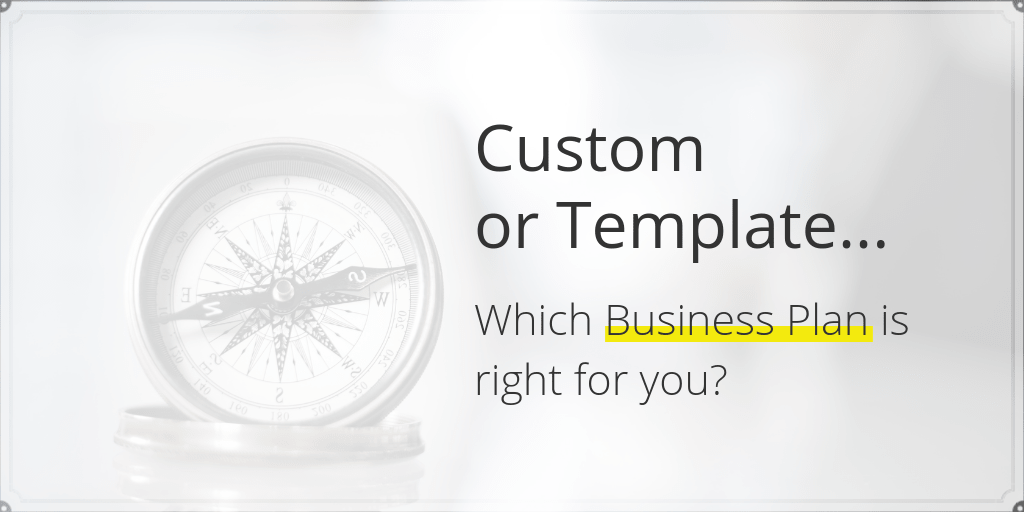May 1, 2015
Custom or template – which business plan is right for you?

Having a clear plan in place to provide direction for your business is imperative to achieving success in any industry. You wouldn’t drive somewhere new without first consulting a map (or at the very least asking for directions) and likewise, without a business plan you can risk veering off track, which can spell disaster for your business.
Your business plan represents the roadmap for your business, enabling you to develop and implement strategies that are in line with your business objectives. This ensures your operations are efficient and targeted towards achieving your goals without wasted expenditure along the way.
Often, however, the extent of detail and inclusions required for a business plan can be confusing, with a vast array of options available from a 3-page template plan to a lengthy 50-100 page custom plan. Determining which option is right for your business can be difficult and can leave many business owners unsure about which path to take. Below we outline the differences between template and custom business plans, to help you identify which is best for you, your business and objectives.
Template Business Plans
A template business plan can provide you with a general outline of the basic components that are necessary for a business plan. These usually range from 15 to 20 pages in length and can be a great guide for getting an idea off the ground. Template business plans are readily available online, some available as free resources and others sold at a low cost.
While they are great for quick turnaround and low cost, the main downside to using template business plans is that they provide a very general format. Even with the numerous industry-specific examples that are available online, they don’t take into account the unavoidable truth that what applies to one business, doesn’t necessarily apply to another. Additionally, not every business owner’s background is in business, and often there can be a lot of confusion when trying to ‘fill the gaps’ under the template headings – especially if they aren’t all relevant to that business.
With that said, templates can be a great option for students to use for university assignments and for entrepreneurs starting out on a shoestring budget.
Custom Business Plans
Custom business plans are exactly that, custom. They are developed based on a deep understanding of the business and the market in which it operates, in line with the business’ goals and objectives. These business plans typically go into a lot more detail and are therefore much more comprehensive than a template plan, with the length of the document varying greatly depending on the business and objectives that it is addressing.
Unless you have a sound business background, it is usually advised to seek out the services of an expert business consultant to help craft your custom business plan. This ensures that the end result is backed by sound business knowledge and research, and covers all of the requirements to meet your objectives (i.e. includes all information that the bank needs to see to approve financing applications). As would be expected, engaging an expert to deliver a custom higher quality business plan does require a higher investment and so may not be the best choice for entrepreneurs starting out. However, if you are applying for funding or have other specific objectives that you need to meet, the outcomes are certainly worth the investment.
When making the call as to which path to go down, it’s important to consider the objectives and purpose behind having a business plan and subsequently, the investment that you are willing to make in order to achieve that. If you’re still unsure, speaking to a consultant can be a great way to gain further clarity. An initial chat shouldn’t cost you anything, depending on who you go to, and they should be able to advise you as to which option will be best suited to your current situation and desired objectives.
Tags: Business Plans, Business Tips, Entrepreneurship, Funding a Startup, Small Business, SME

